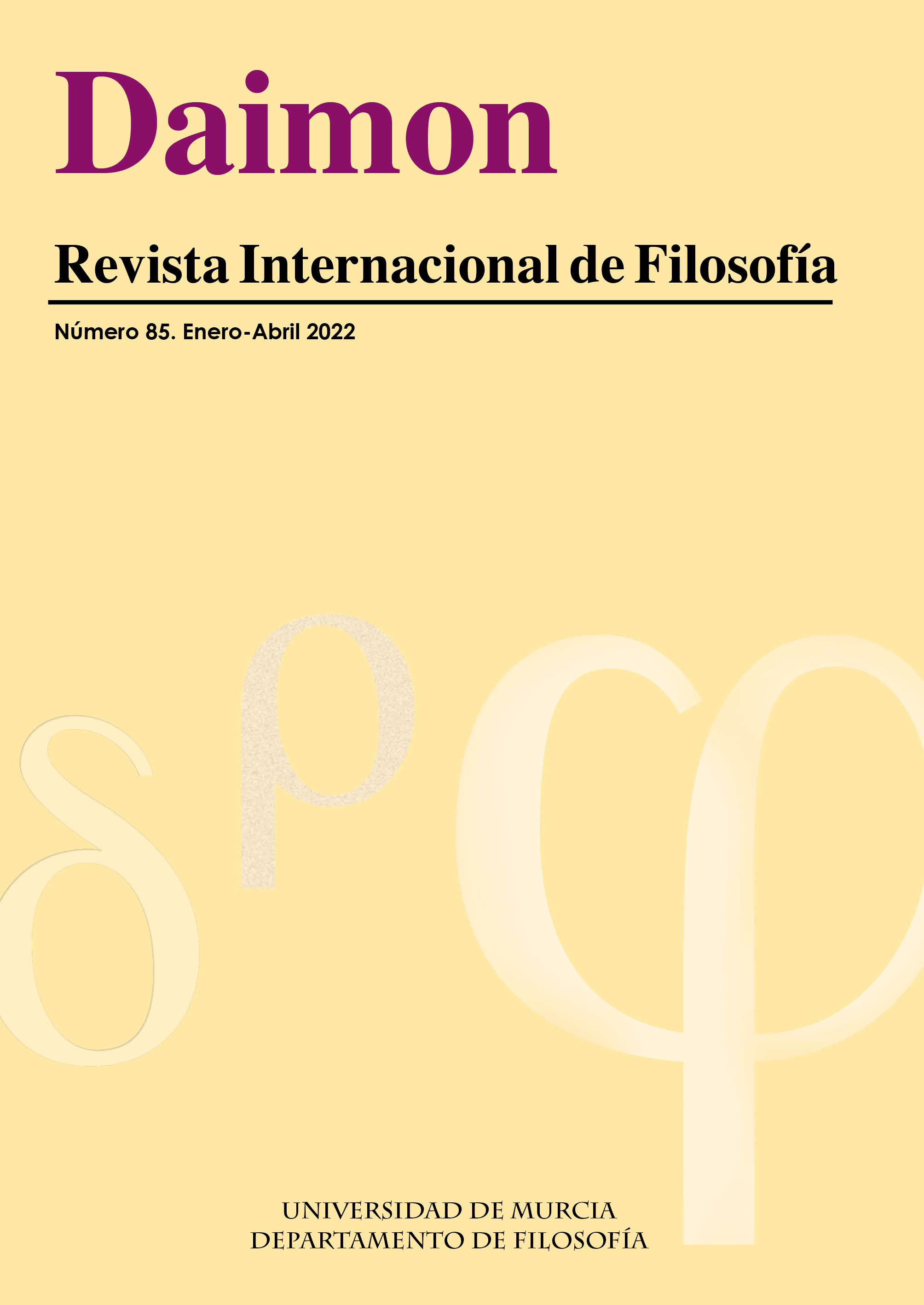Ciudadanía democrática y ethos científico: una perspectiva pragmatista
Résumé
La erosión de la confianza en las capacidades epistémicas de la ciudadanía tiene en su raíz la radical separación entre hechos y valores que el pragmatismo ha considerado como clave de nuestra cultura. Hoy es posible superar el dualismo sobre la base de un conjunto de virtudes y disposiciones individuales que son tanto éticas como epistémicas. Este entrelazamiento entre lo ético y lo epistémico pone de manifiesto la imbricación entre una concepción deliberativa de la democracia con su exigencia de una ética cívica y los requerimientos de una ética de la investigación científica en el marco de una sociedad democrática.
Téléchargements
-
Résumé939
-
PDF (Español (España))606
-
HTML (Español (España))250
Références
ALLEA, European Federation of Academies of Sciences and Humanities, (2013) The European Code of Conduct for Research Integrity. European Science Foundation. http://www.allea.org/wp-content/uploads/2017/05/ALLEA-European-Code-of-Conduct-for-Research-Integrity-2017.pdf
Arias Maldonado, M. (2016) La democracia sentimental. Política y emo¬ciones en el siglo XXI, Página Indómita.
Berstein, R. (2005) The Abuse of Evil. Polity Press.
Bohman, J. (2004) “Realizing Deliberative Democracy as a Mode of Inquiry: Pragmatism, Social Facts, and Normative Theory”. Journal of Speculative Philosophy, Vol. 18. No, 1.
Del Aguila, R. (2007) “Ironía, Verdad y Democracia, Richard Rorty In Memorian”, Revista de Libros, nº 131, 2007
Dewey, J. The Collected Works of John Dewey, Carbondale, Southern Illinois University Press. 1969 – 1991.
Douglas, Heather E. (2009) Science, policy, and the value-free ideal. University of Pittsburgh Press.
European Commission. EU (2013) Options for strengthening reponsible research and innovation. Report of the Expert Group on the State of Art in Europe on Responsible Research and Innovation. https://publications.europa.eu/en/publication-detail/-/publication/1e6ada76-a9f7-48f0-aa86-4fb9b16dd10c/language-en
Ferris, T. (2011) The Science of Liberty. Democracy, Reason, and the Laws of Nature. Harper Perennial.
Feyerabend, P. (1983) How to Defend Society against Science? En I. Hacking (ed). Scientific Revolutions (156-167). Oxford: Oxford University Press.
Kitcher, P. (2011) Science in a Democratic Society. Prometheus Books. New York.
Koertge, N. ed. (2005) Scientific Values and Civic Virtues. Oxford University Press.
Longino H. E. (1995) “Gender, Politics and the Theoretical Virtues”. Synthese. Vol. 104, nº 3, pp 383 – 397.
Longino H. E. (2002) “Science and the Common Good: Thoughts on Philip Kitcher’s Science, Truth, and Democracy”. Philosophy of Science, Vol. 69, No. 4, pp. 560-568.
Marchetti, G. & Marchetti, S. (2017) Facts and Values. The Ethics and Metaphysics of Normativity. Routledge.
Martí, J. Luís. (2006) La república deliberativa. Marcial Pons.
McMullin, E. (2012) “Values in Science”. Zygon, Vol 47, nº 4, 686 – 709.
Mill, J.S. (1991) Sobre la libertad. Espasa Calpe.
Misak, Cheryl (2000) Truth, Politics, Morality: Pragmatism and Deliberation. Routledge.
Nowotny, H., Scott, P., and Gibbons, M. (2002) Re-Thinking Science Knowledge and the Public in an Age of Uncertainty. Blackwell.
Pallitto,N., Francese N., Pasquo, F., y Folguera, G. (2018) “Ciencia y Democracia. Una crítica filosófica a dos modelos de vínculo propuestos en Filosofía de la Ciencia”. Factótum 19, 1-11.
Parsons, K. (2005) “Defending the Radical Center”. En Koertge, 2005.
Paternotte, C., Ivanova, M., “Virtues and vices in scientific practice”. Synthese (2017) 194:1787–1807. DOI 10.1007/s11229-016-1023-2
Putnam, H. (2002) The Collapse of the Fact/Value Dichotomy and Other Essays, Harvard University Press.
Resnik D.B. y Elliot, (2016) “The Ethical Challenges of Socially Responsible Science”. Account Res; 23(1): 31 - 46 .
Strand, R. (2015) Indicators for promoting and monitoring Responsible Research and Innovation. Report from the Expert Group on Policy Indicators for Responsible Research and Innovation. Publications Office of the European Union.
Talisse, Robert B. (2005) Democracy after Liberalism: Pragmatism and Deliberative Politics.
Londres-Nueva York: Routledge.
Talisse, Robert B. (2007) A Pragmatist Philosophy of Democracy. Londres-Nueva York: Routledge.
Taverne, D. (2005) The March of Unreason. Science, Democracy and the New Fundamentalism. Oxford University Press.
Turri, John, Alfano, Mark and Greco, John, (2008) "Virtue Epistemology", The Stanford Encyclopedia of Philosophy (Summer 2018 Edition), Edward N. Zalta (ed.), <https://plato.stanford.edu/archives/sum2018/entries/epistemology-virtue/>.
Urbinati, N. (2014) Democracy disfigured: opinion, truth, and the people. Harvard University Press.
Vallespín, F, y Bascuñana. M. (2017) Populismos. Alianza Editorial.
Vargas-Machuca, R. (2015) “Democracia y verdad”, en Wences Simon Mª I (ed). Tomando en serio la teórica política: entre las herramientas del zorro y la estrategia del erizo, 269-292. Centro de Estudios Constitucionales.
Zagzebski, L. (1996) Virtues of the Mind: An Inquiry into the Nature of Virtue and the Ethical foundations of Knowledge, Cambridge University Press.
Las obras que se publican en esta revista están sujetas a los siguientes términos:
1. El Servicio de Publicaciones de la Universidad de Murcia (la editorial) conserva los derechos patrimoniales (copyright) de las obras publicadas, y favorece y permite la reutilización de las mismas bajo la licencia de uso indicada en el punto 2.
2. Las obras se publican en la edición electrónica de la revista bajo una licencia Creative Commons Reconocimiento-NoComercial-SinObraDerivada 3.0 España (texto legal). Se pueden copiar, usar, difundir, transmitir y exponer públicamente, siempre que: i) se cite la autoría y la fuente original de su publicación (revista, editorial y URL de la obra); ii) no se usen para fines comerciales; iii) si remezcla, transforma o crea a partir del material, no podrá distribuir el material modificado.
3. Condiciones de auto-archivo. Se permite y se anima a los autores a difundir electrónicamente las versiones pre-print (versión antes de ser evaluada) y/o post-print (versión evaluada y aceptada para su publicación) de sus obras antes de su publicación, ya que favorece su circulación y difusión más temprana y con ello un posible aumento en su citación y alcance entre la comunidad académica. Color RoMEO: verde.











